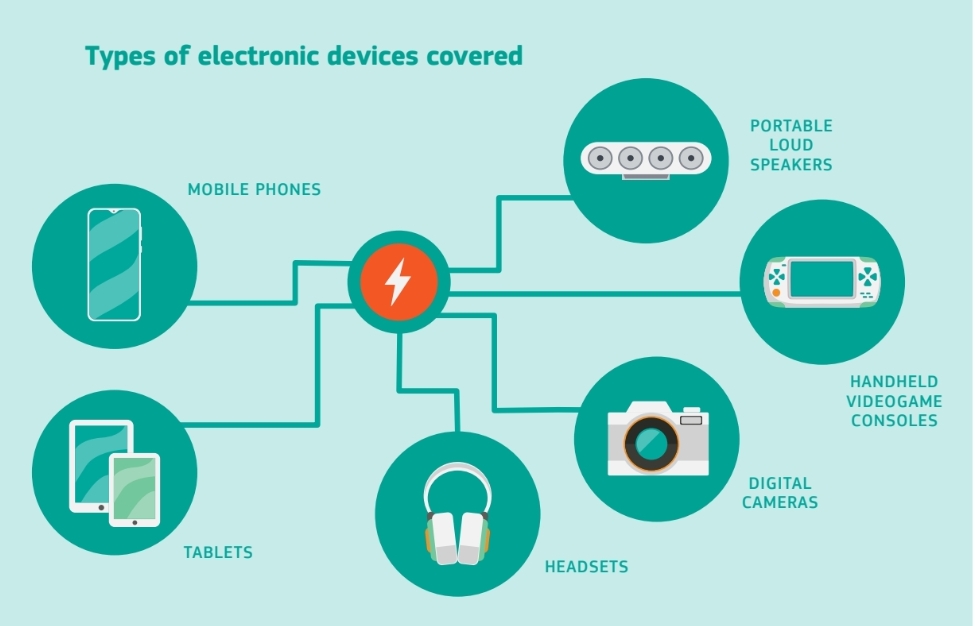The European Union doesn’t shy away from using legislatory powers to regulate big tech. The European Union’s General Data Protection Regulation (GDPR) came into effect in 2018 and is one of the toughest security and privacy laws in the world. They have stepped in again for consumers, and this time they want to make sure USB-C is the common charging port for devices.
The legislation proposes a lot of good things, so we have broken them down for you.
USB-C For the Win

First of all, they want USB-C as a single standard for almost all portable consumer devices. The list includes smartphones, tablets, cameras, headphones, portable speakers, and handheld video game consoles.
Today, the Commission takes an important step against e-waste and consumer inconvenience, caused by the prevalence of different, incompatible chargers for electronic devices. Years of working with industry on a voluntary approach already brought down the number of mobile phone chargers from 30 to 3 within the last decade, but could not deliver a complete solution. The Commission is now putting forward legislation to establish a common charging solution for all relevant devices.
Secondly, the commission wants a universal fast charging standard for all these devices. There was a time when Android manufacturers were happy to use Qualcomm’s QuickCharge, and while it only worked in devices with Snapdragon chipsets, it was still a broad profile of users. Recently there is an on-going arms race in the fast charging space, with every company having proprietary chargers for different devices, without which Fast-Charging isn’t enabled or is extremely limited.
Also, this proposal likely won’t restrict manufactures from offering very high speed, but instead the capability to support a baseline, like say 25W charging on all devices without any propietory restrictions.
Removing Chargers From the Box

There is also a push to remove chargers from the box, and instead, be offered as a purchasable accessory. This is a very important step in controlling E-WASTE, and with this, the commission expects to reduce electronic waste by almost a thousand tons every year.
In 2020, approximately 420 million mobile phones and other portable electronic devices were sold in the EU. On average, consumers own around three mobile phone chargers, of which they use two on a regular basis. Despite this, 38% of consumers report having experienced problems at least once that they could not charge their mobile phone because available chargers were incompatible. The situation is not only inconvenient but also costly for consumers, who spend approximately €2.4 billion annually on standalone chargers that do not come with electronic devices. In addition, disposed of and unused chargers are estimated to pile up to 11,000 tonnes of e-waste every year.
More Transparency

Lastly, the commission wants manufacturers to be more transparent and make sure consumers have clear information on charging speeds, power requirements, and fast charging standards. This again can help consumers in the EU save an additional 250 Million Euros every year on avoidable charging accessory purchases.
The above are proposals from the EU Commission, and they still need to be passed in the European Parliament to enact them as laws. Manufacturers will also get an additional period of 24 months to prepare for the transition after the law is passed.
You can click here to read the official report from the European Commission.
The post European Union Proposes to Make USB-C the Mandatory Charging Standard for Portable Devices appeared first on Appuals.com.

0 Commentaires